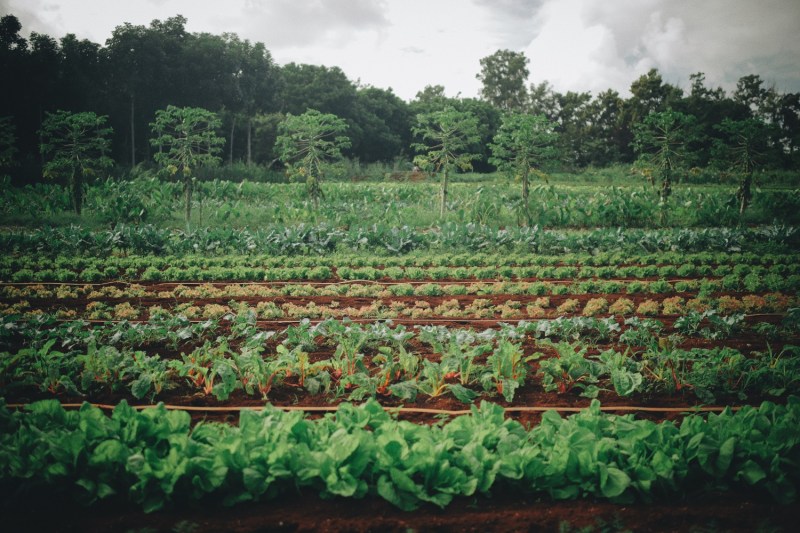“The land is our chief and we are its servants; if we take care of this land, it will take care of us,” Hawaii native Malia Chun reservedly proclaims over the Waimea Valley on Oahu’s North Shore.

As she stands atop a dramatic overlook with her family, the opening scene of Island Earth unfolds into a multifaceted conversation about the future of farming with new issues at every turn. It’s a story that unpacks the issues behind GMOs in the global food supply and examines their impact at the local level.
It’s the latest work by Emmy-winning filmmaker Cyrus Sutton and may be his most complex yet.

The film follows local scientist Dr. Cliff Kapono as he searches for answers to the rapid change in Hawaiian agricultural practices, including the near-total takeover of available Hawaiian agricultural land by companies focused on experimenting with GMOs (genetically modified organisms) to increase food production for and on the mainland.
Sutton illustrates the transitive nature of the problem through myriad public and private interests that constantly tangle, while families, schools, and communities are stuck (literally) between large swaths of chemically-laden farming land. On one side, large corporations are redrawing the lines for large-scale production of mechanized farming. On the other, local community leaders and activists are planting crops one at a time to replenish a land that has been turned upside down by industrialization.
- 1. Fields give way to villages hugging the shore.
- 2. Traditional Hawaiian farming techniques.
- 4. Anti-GMO March on Maui, Hawaii, 2015
We caught up with Sutton by phone to learn more about his journey making the film and its relevancy in today’s landscape.
What do you think is the film’s most important storyline?
I think there’s a big conflict between the people living on the land and the agricultural corporations that follows old patterns of colonialism. I wanted to explore this deeper theme of balance and not participating in the system in a way that continues the cycle. I wanted to show the organic power of community building as we continue to tackle these issues and focus on bringing all of the sides together.
Was it tough to balance the competing agendas while making the film?
It’s really about getting to the source of each of their grievances – looking at the different movements and highlighting those who have been marginalized. It’s a tough issue: Locals are being poisoned by the chemicals that these big corporations are using, but those same companies simultaneously provide jobs for the community. In the film, Kauai was a case study for that.
Does the current political landscape (both in America and globally) change the meaning or urgency of the film?
I finished the film before Trump was elected. However, it ended up being ironic that the guy we elected is similar to him (Kauai mayor Bernard Carvahlo) – it just shows that we have a lot of work to do.
I think the messages uncovered are more relevant than ever. For a long time, we’ve had a higher quality of life by extracting resources from other, less-developed places. As the rest of the world starts to globalize, this creates a problem in balancing everyone’s needs. What might have seemed like just a Hawaiian or poor person’s issue is now spreading into a very global issue.
Where do we go from here?
It’s a two-front fight.
First, civics have been an unsexy thing for a long time, but it’s time to get re-engaged with local politics. Going to your local city/county meetings and making that effort is more important than ever. It’s fascinating to see how these decisions are made and note the level of involvement along the way. As a result, we can reinvent our food systems through control and accountability.
Second, the reason why we grow food the way we do is to mechanize our harvest. We’ve built a system where pesticides and row harvesting dominate the landscape. Creating a more robust and resilient framework will be key moving forward as a directive to creating more food locally. We can create biodiversity in our agriculture and bring back some of the paradigms that have been lost through the generations.
The stark challenges ahead are encapsulated in a scene towards the end of the film as Chun wanders through the aisles of a local Costco, dissatisfied with the lack of local options to feed her family.
“It’s hard not be part of this machine,” she says.
Shortly after, she looks over a lush valley sweeping down to the electric blue sea just a mile away from the big box discounter and the end game comes into focus.
“The ultimate goal is to see this place one day thrive again,” she says as she gestures deferentially to the land, “and provide food for our community.”






